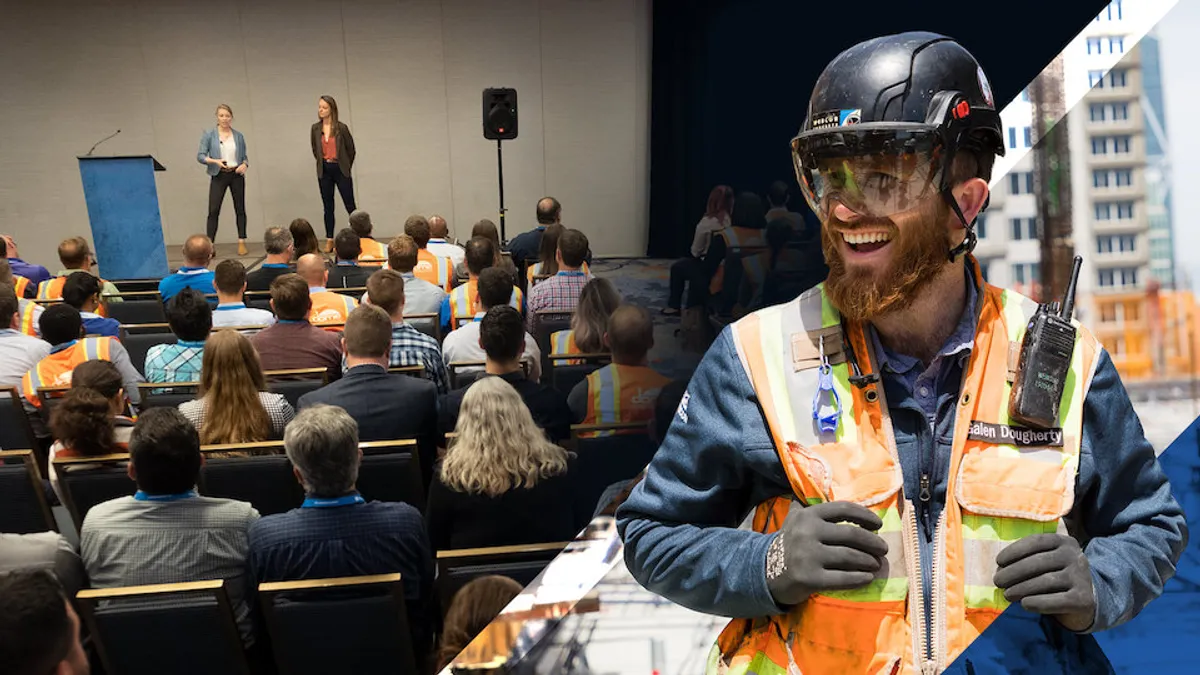Last year was among the hardest in recent history the construction industry has faced. Yet, we also saw acts of everyday heroism that took many forms as people found new ways to support their colleagues and communities. Autodesk’s Construction Champion “40 under 40” series unearthed stories of eight standout heroes from 2020. Dive in and read on to learn how these eight construction team members tackled new challenges with innovative thinking, determination and resiliency.
Providing protection
One of the most pressing challenges at the start of the coronavirus pandemic was securing the equipment and establishing practices that would keep frontline workers safe. This was a big focus for Carolina Alvarez, owner of J&S Building Maintenance, a provider of commercial and construction cleaning services.
Carolina was quick to realize supply challenges would be created by the pandemic. Rather than throwing up her hands in resignation, she drove from Long Beach, California to as far as San Diego and Las Vegas (approximately 445 miles) and used social media to source needed chemicals and PPE. With her grit and innovative prowess, she secured vital supplies and enabled crucial construction work to continue – and donated some of these materials to local organizations.
Samiha Shakil, senior VDC manager at Skanska also drew on her quick-thinking skills and technical knowledge to support frontline workers. Leveraging her experience in 3D printing, she swiftly sourced a clinically-approved design for a face guard and set up an assembly line at home. Since April, she and her husband have 3D-printed more than 500 face guards and donated them to hospitals across New York City, as well as fire department emergency medical technicians.
Both Carolina and Samiha are driven by the importance of using the skills and experience gained in construction to pay it forward – and help others in need.
Building resiliency
Resiliency became a critical quality in 2020 – and our heroes not only showed great personal resolve, but strengthened others in the community too. As an electrical engineer, Lazar Vilimonovic was on the frontlines of the crisis, ensuring that hospitals were prepared for coronavirus case surges. By supporting campus-wide planning on sites like the Cleveland Clinic, Lazar helped keep health workers safe and ultimately saved lives.
At Dempsey Construction, a compassionate working culture has always been at the heart of the business. For Vice President of Operations Bryce Raleigh, the pandemic was a time when it was vital to provide extra support through a relief fund. Each Dempsey employee received checks and gift cards totaling $1,400 – funds which were used to give back to the community through random acts of kindness.
As director of sustainability and building performance at Arrowstreet, Kate Bubriski works to create healthier, more sustainable buildings for occupants and communities. Her immediate priority in 2020 was providing tools and resources to support facilities’ virus mitigation strategies, to protect residents and get people into the workplace and children into classrooms.
Kate also raises awareness of the impact of the built environment on human health. Inspired by the diversity, equity and inclusion movement, Kate has been promoting environmental justice – highlighting the rights of groups historically marginalized by society and in urban planning.
The work of Lazar, Bryce and Kate has supported others in overcoming difficulties and will help to create stronger communities long beyond the pandemic.
Pioneering technology
Many construction firms turned to technology to combat the disruption of the pandemic. One issue most of the industry continues to face is balancing the efficiency required by tight project timelines with creating socially distanced environments for workers. Geoffrey Bean, virtual construction coordinator at W. M. Jordan, turned to Navisworks; he and his team methodically analyzed site conditions and found ways to optimize worker and material movements while accounting for social distancing, to keep the workforce more protected.
For Ruhi Thakur, assistant project manager at Webcor, technology was a means of effectively collaborating in a work environment that had suddenly become remote. During 2020, Ruhi led a pilot exploring the use of virtual reality to enable project stakeholders to review the constructability of complex design models on Navisworks. Ruhi’s work helped to mitigate the constraints imposed by the pandemic.
In the UK, technology was critical for the rapid construction of temporary Nightingale Hospitals, intended to protect the National Health Service from becoming overwhelmed by coronavirus. Project Manager Dan Harmer’s team at Tilbury Douglas (formerly known as Interserve Construction) was tasked with constructing a 1,959,000 ft2 hospital in Birmingham, with plans that were evolving on an hourly basis. PlanGrid kept all 450 stakeholders who were collaborating on the project fully updated, while adhering to strict social distancing. The hospital was completed and ready to use in just nine days.
Geoff, Ruhi and Dan are three examples of how construction innovators are not only improving our industry, but how we serve others – which will continue into 2021 and beyond.
We thank all the construction heroes who have led the way throughout this challenge. Read even more stories here.










